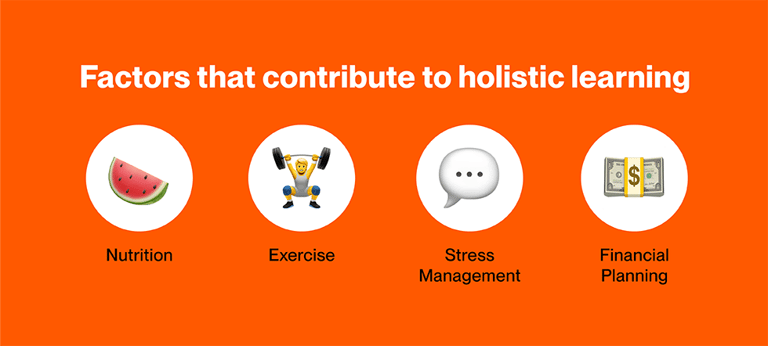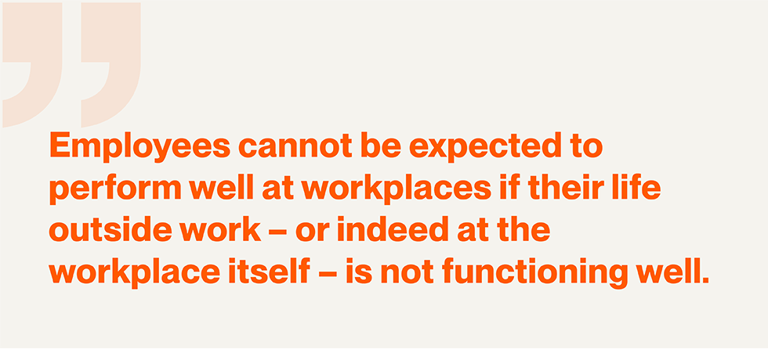Why Forward-Thinking Organizations Embrace Holistic Learning
Written by
Tigerhall Team
Posted on
Last modified on

Employees are a company’s greatest assets and require consistent investment by the organizations they are part of. Holistic training and development of staff is important in maintaining these crucial assets with lifelong learning now an economic imperative for both employees and firms.
What is holistic learning?
Taking a strategic view of learning remains key, according to LinkedIn Learning’s 2020 Workplace Learning Report. Holistic learning translates into recognizing all aspects (holistic) of employees’ lives with the knowledge that life is not just about work. Employees cannot be expected to perform well at workplaces if their life outside work – or indeed at the workplace itself – is not functioning well. Holistic development refers to evolving continuously into better people overall.
Areas such as health & wellness, effective stress management, appropriate nutrition, financial planning, managing personal budgets for financial comfort are key to employees’ holistic well-being. Yet, these are often overlooked as organizations focus on work-related training or performance indicators. Once these ‘external’ factors are balanced, employees are likely to be more productive at the workplace itself.
What factors contribute to holistic learning?

Forward-thinking organizations rely on multi-dimensional and lifelong learning for employees according to a HBR study and understand that this directly impacts their bottomline. Employee retention also gets a boost by simply adding the following simple elements to an L&D checklist:
Nutrition
It's rightly said that “You are what you eat”. Firms with a strategic approach to employee development, promote employee health by embracing small measures such as a designated “Fruit day” every week (providing complementary fruits to staff) as well as creative techniques like setting group targets for weight management and healthy eating.
Exercise
Not enough can be said about the benefits of exercise and adequate sleep. The trend of organizations tying up with established gym chains or yoga instructors to offer discounted services to employees remains strong. In addition, a pronounced move towards maintaining work-life balance and promoting consumption of leave entitlements remains crucial.
Stress management
Increasing focus and awareness of ‘mental health’ and adverse impact of stress on productivity has allowed people and organizations to navigate away from the erstwhile stigma that was associated with these topics. A number of global organizations provide Employee Assistance Programs which offer 24-7 access to confidential counseling services to deal with a range of challenges faced at work and in personal lives.

Financial planning
Providing appropriate advice on managing finances via access to financial planners, access to ‘soft loans’ for important life events (house purchase, children’s education) go a long way in promoting financial security.
Strategic-thinking organisations accept that each employee is ‘one person’ rather than separate the individual ‘at work’ and ‘outside work’ – an approach that enables focused engagement strategies via L&D. The potential for increased productivity and promise of a mutually beneficial, long-term partnership between firms and employees are reason enough to embrace holistic learning within workplaces.